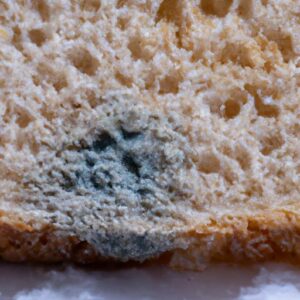Introduction
Did you ever find yourself standing over the sink, contemplating whether to pour that leftover cooking oil down the drain? It may seem like a convenient solution, but have you ever wondered what happens after the oil disappears out of sight? The truth is, pouring cooking oil down the drain can have severe consequences for both your plumbing and the environment. In this article, we will delve into the importance of proper disposal of cooking oil and its impact on drains and the environment.
Importance of Proper Disposal of Cooking Oil
Cooking oil, whether it’s vegetable, olive, or any other type, is a common ingredient used in households around the world. However, the improper disposal of cooking oil poses a significant threat to our plumbing systems. When oil is poured down the drain, it may appear harmless at first, but as it cools and solidifies, it can cause blockages and clogs in pipes. Over time, these clogs can lead to costly repairs and even damage to the entire sewer system.
Impact of Cooking Oil on Drains and the Environment
The consequences of pouring cooking oil down the drain extend beyond our personal plumbing. Once the oil enters the sewer system, it can wreak havoc on wastewater treatment plants. Oil forms a thick layer on the surface of water bodies, hindering the oxygen exchange vital for aquatic life. Additionally, the presence of oil in water can contaminate the soil, leading to harmful effects on plants and wildlife.
As stewards of the environment, it is our responsibility to find eco-friendly solutions for the disposal of cooking oil. In the following sections, we will explore whether cooking oil can truly go down the drain and the potential problems it can cause. Stay tuned to discover the best practices for proper cooking oil disposal and the benefits of adopting these environmentally-conscious methods.
Next, I will write Section II: “can cooking oil go down the drain?”
Can Cooking Oil Go Down the Drain?
Understanding the Consequences of Pouring Cooking Oil Down the Drain
Picture this: you pour that sizzling pan of used cooking oil down the drain, watching it disappear into the depths of your plumbing system. But what really happens to the oil once it’s out of sight? Unfortunately, the consequences can be far from desirable.
When cooking oil is poured down the drain, it may initially flow freely. However, as it cools and solidifies, it can adhere to the inside of pipes, accumulating over time. This sticky residue acts as a magnet for other debris, leading to clogs and blockages that can impede the flow of water. As a result, you may experience slow drainage, foul odors, or even complete plumbing backups.
Factors Affecting the Drainability of Cooking Oil
Drainability of cooking oil can vary depending on several factors. One crucial aspect is the type of oil being used. Oils with high saturated fat content, such as animal fats, solidify more easily and are more likely to cause clogs. Furthermore, the temperature at which the oil is poured down the drain plays a role. Hot oil may flow more smoothly initially but can solidify faster once it cools down.
The quantity of oil being disposed of also affects drainability. It’s important to remember that even small amounts of oil can accumulate over time and contribute to plumbing issues. Additionally, the condition of your plumbing system, such as the age and integrity of the pipes, can influence how well it handles oil disposal.
Now that we understand the consequences of pouring cooking oil down the drain and the factors that impact its drainability, it’s clear that a more responsible approach is needed. In the following section, we’ll explore the potential problems caused by improper oil disposal and the importance of adopting proper methods to protect our drains and the environment.
Next, I will write Section III: “Potential problems caused by pouring cooking oil down the drain.”
Potential Problems Caused by Pouring Cooking Oil Down the Drain
When it comes to disposing of cooking oil, pouring it down the drain might seem like a quick and easy solution. However, this practice can lead to a host of problems that can wreak havoc on your plumbing system and even impact entire wastewater treatment plants.
Clogging of Pipes and Drains
One of the immediate consequences of pouring cooking oil down the drain is the potential for clogs. While liquid when hot, cooking oil solidifies as it cools, creating a sticky residue that adheres to the inner walls of pipes. Over time, this buildup can accumulate, gradually narrowing the passage for water to flow freely. The result? Slow drains, backups, and even complete blockages that require costly repairs.
Damage to Sewer Systems and Wastewater Treatment Plants
Beyond the confines of your own plumbing, the repercussions of pouring cooking oil down the drain extend to the wider sewer system and wastewater treatment plants. As the oil moves through the pipes, it can accumulate and congeal, forming large obstructions that impede the flow of wastewater. This can lead to overwhelmed sewer systems, resulting in sewage backups and potential damage to infrastructure.
Moreover, when cooking oil enters wastewater treatment plants, it poses a significant challenge. The oil can float on the surface of water, creating a barrier that prevents oxygen exchange. This lack of oxygen disrupts the natural balance of aquatic ecosystems, potentially harming the plants and animals that rely on these habitats for survival.
It is clear that pouring cooking oil down the drain can have dire consequences for both your plumbing and the environment. In the following sections, we will explore alternative methods for disposing of cooking oil that alleviate these potential problems. By adopting these proper disposal techniques, you can help protect your drains, sewer systems, and the delicate balance of our ecosystems.
Next, I will write Section IV: “Proper methods for disposing of cooking oil.”
Proper Methods for Disposing of Cooking Oil
When it comes to disposing of cooking oil, it is crucial to follow proper methods to avoid any negative consequences for both your plumbing and the environment. Here are some eco-friendly solutions to ensure that your cooking oil is disposed of responsibly.
Recycling Options for Used Cooking Oil
One of the best ways to dispose of cooking oil is by recycling it. Many recycling centers and facilities accept used cooking oil and repurpose it for various purposes. The recycling process involves filtering and refining the oil to remove impurities, making it suitable for reuse. Recycled cooking oil can be transformed into biodiesel, a renewable energy source that reduces carbon emissions. By recycling your cooking oil, you not only prevent it from clogging your drains but also contribute to a greener and more sustainable future.
Solidifying and Disposing of Oil in the Trash
If you don’t have access to a recycling center or drop-off location, another option is to solidify the cooking oil before disposing of it in the trash. Allow the oil to cool and solidify in a container, such as an empty coffee can or a plastic bag. Once solidified, seal the container tightly and place it in the regular trash bin. This method prevents the oil from leaking and causing any plumbing issues. However, it is important to note that this should be a last resort, as recycling is a more environmentally-friendly option.
Local Recycling Centers and Drop-off Locations
To find the nearest recycling center or drop-off location for your used cooking oil, check with your local municipality or waste management facilities. Many cities and towns have specific programs in place to collect and recycle cooking oil. Some grocery stores or community centers may also provide collection points for used cooking oil. Take the initiative to research and locate these facilities to ensure your oil is disposed of properly.
By following these proper methods of disposing cooking oil, you can make a positive impact on the environment and prevent potential plumbing issues. In the next section, we will explore the benefits of adopting these eco-friendly practices and why it’s essential to prioritize responsible cooking oil disposal.
Next, I will write Section V: “Benefits of proper cooking oil disposal.”
Benefits of Proper Cooking Oil Disposal
When it comes to disposing of cooking oil, we often underestimate the impact our actions can have on the environment and our everyday lives. By adopting proper cooking oil disposal methods, we can reap several benefits that go beyond just avoiding clogged drains. Let’s explore these benefits in more detail.
Environmental Benefits
Properly disposing of cooking oil helps protect our environment in numerous ways. When oil is poured down the drain, it eventually ends up in water bodies, causing pollution and harm to aquatic ecosystems. By opting for eco-friendly disposal methods, such as recycling or solidifying the oil for trash disposal, we can prevent this contamination.
Recycling used cooking oil is an excellent way to give it a new lease on life. Many recycling centers and drop-off locations accept used cooking oil, which is then transformed into biodiesel fuel through a process called transesterification. By recycling cooking oil, we reduce our reliance on fossil fuels and lessen our carbon footprint.
Preventing Plumbing Issues and Costly Repairs
Proper cooking oil disposal is not just about safeguarding the environment; it also helps us avoid plumbing issues and costly repairs. When oil is poured down the drain, it solidifies and accumulates over time, leading to blockages and clogged pipes. These clogs can cause backups, unpleasant odors, and even damage to the entire plumbing system.
By adopting alternative disposal methods, such as solidifying cooking oil in a container and disposing of it in the trash, we can prevent these plumbing nightmares. Taking this simple step not only saves us from potential headaches but also saves us money that would otherwise be spent on expensive plumbing repairs.
In conclusion, proper cooking oil disposal offers a range of benefits. By protecting the environment and preventing plumbing issues, we can contribute to a cleaner and healthier world while also saving ourselves from unnecessary expenses. So, the next time you finish frying or sautéing, remember to choose the right disposal method and make a positive impact on both your surroundings and your wallet.
Next, I will write Section VI: “Conclusion”
Conclusion
In conclusion, the question of whether cooking oil can go down the drain is one that demands our attention. We have explored the importance of proper disposal of cooking oil and the detrimental impact it can have on both our plumbing systems and the environment. Pouring oil down the drain may seem like a quick and easy solution, but it can lead to costly repairs, clogged pipes, and damage to sewer systems and wastewater treatment plants.
By adopting eco-friendly methods for disposing of cooking oil, we can mitigate these risks and protect our planet. Recycling options for used cooking oil, solidifying and disposing of oil in the trash, and utilizing local recycling centers are all viable alternatives to pouring oil down the drain. Not only do these methods prevent plumbing issues, but they also have significant environmental benefits. Proper cooking oil disposal helps to reduce pollution, preserve aquatic ecosystems, and safeguard the soil.
Next time you find yourself with leftover cooking oil, remember the impact it can have and make a conscious choice to dispose of it responsibly. Together, we can make a difference by adopting eco-friendly practices and ensuring that cooking oil stays out of our drains. Let’s protect our plumbing and the environment for a cleaner and healthier future.
Remember, the journey towards a sustainable lifestyle starts with small actions. So, why not start by properly disposing of your cooking oil today? Together, we can make a significant impact and create a greener world for generations to come.
*This concludes the article.


